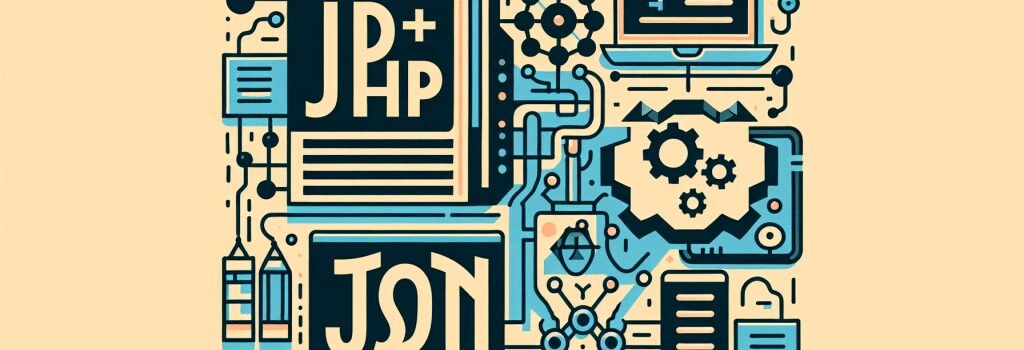PHP and JSON: Encoding and Decoding for Web Services

Hello there, prospective web developers!
Welcome to another exciting installment of our backend development saga. Today, we will bravely venture into the intricate world of PHP and JSON, exploring their symbiotic relationship and how it affects your web service. Don’t worry, you’re not going on this journey alone, my humor and I are here with you. Buckle up, and let’s get decoding… or encoding, if you will!
Understanding PHP and JSON: An Alliance Serving Web Royalty
Before we delve into the nitty-gritty, here’s a good question, ‘What on earth is PHP, JSON and why should I care?’ Well, my young padawan, you’re asking the right questions.
PHP (Hypertext Preprocessor) is a well-liked scripting language suited for web development. Don’t let the ‘Preprocessor’ scare you, it’s not the monster hiding under your bed, it’s a powerhouse that dishes out HTML.
Now, JSON (JavaScript Object Notation), is a lightweight data interchange format. Basically, JSON is the mailman who delivers data between a server and a web application. It is easy for humans to understand and easy for machines to parse and generate – just like your 5th-grade math.
The Bridge Between PHP and JSON
I hear you ask, ‘So how do PHP and JSON intertwine?’ Oh, the suspense! They join hands through magical tasks called ‘encoding’ and ‘decoding.’ Let’s break it down!
PHP and JSON Encoding – Fun with Arrays
Are you ready for a mind-blowing fact? PHP and JSON speak different languages. PHP uses arrays while JSON uses strings. This is where “json_encode” saves the day. It helps us translate from PHP to JSON language. Think of it as our trusty Universal translator.
In simple terms, “json_encode” converts PHP arrays into JSON strings. You can send these strings over your web service so other applications can understand the data. It’s like converting your grandma’s old recipes into emojis collaboratively on a family WhatsApp group.
PHP and JSON Decoding – Hide and Seek with String
Now, if PHP can change its language to JSON, the latter can also give it a shot, right? Indeed, here comes decoding! “json_decode” converts data from JSON to PHP.
In reality, it changes JSON strings back into PHP arrays. So, when you receive your second cousin’s emoji-filled recipe over WhatsApp, you can decode it back into the original recipe. That’s right, we finally found the missing piece to your holiday potluck!
Apps-Building Race: PHP-JSON Winning Strategies
Web services are fast becoming the indomitable kings and queens of the digital kingdom. To successfully write a script for this royal court, it’s crucial to learn when to use encoding and decoding in PHP and JSON.
Navigating PHP and JSON can be like trying to find Waldo, we admit it. But with encoding and decoding, you’re not just finding Waldo, you’re creating him and dictating the rules of the game!
Wrapping Up
See, turns out PHP and JSON’s relationship is not built on complicated jargon, it’s offering you an easier way to manage data. I hope this article brought you a step closer to declaring yourself the king or queen of the PHP-JSON alliance. Next time, we’ll look at how PHP and JSON like to party with AJAX, and no, it’s not what you use to clean your windows.
Remember, developers are like superheroes, you have the power to build and decode invisible structures. The digital world needs you, it’s time to put on that coding cape!
Until next time, happy coding!


